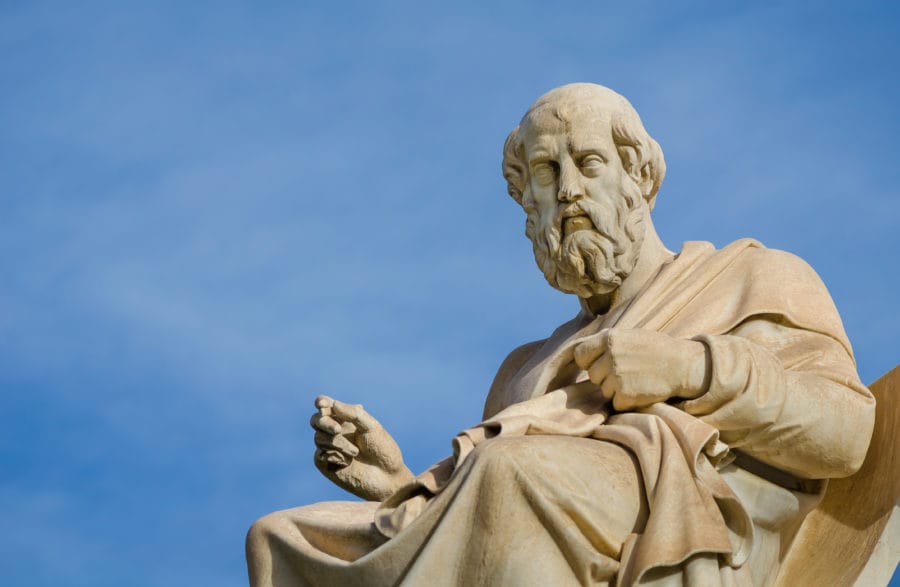Menu
Install the app
How to install the app on iOS
Follow along with the video below to see how to install our site as a web app on your home screen.
Note: This feature may not be available in some browsers.
Greek History Community
Who are your favorite Greek philosophers?
- Thread starter cf_fraiser
- Start date
1 - 7 of 7 Posts
Vangelis
Active member
I remember doing this at school and thinking what is this rubbish they are teaching us? Now, I find myself quoting it all the time!Aristotle for sure. I love the allegory of the cave
francescool
Active member
Same!! The more we learn the more were able to learnI remember doing this at school and thinking what is this rubbish they are teaching us? Now, I find myself quoting it all the time!
k_tsoukalas
Administrator
I think it is a good idea to start with an overview. There are many philosophers, and all came about at different time periods and have different, conflicting beliefs. Maybe start here?

 www.greekboston.com
www.greekboston.com

Top Ancient Greek Philosophers
Here's a look at the top ten ancient Greek philosophers.
 www.greekboston.com
www.greekboston.com
1 - 7 of 7 Posts
JOIN THE DISCUSSION AND READ OTHER GREEK INFO:
Fall of Constantinople Information
- dimi_pat
- Greek History Forum
- Replies: 1
I'm currently delving into the history of the Byzantine Empire, and I'm particularly fascinated by the fall of Constantinople in 1453. I’d love to gather more detailed information on this pivotal event. Specifically, I’m interested in:
- The key factors that led to the fall of Constantinople.
- The major players involved in the siege, including leaders and military strategies.
- The role of technology and weaponry, such as the use of cannons.
- The immediate and long-term impacts on the Byzantine Empire and the wider world.
- Any recommended books, documentaries, or articles that provide a thorough analysis of the event.
Kingdoms in Ancient Greece?
- mj_toronto8
- Greek History Forum
- Replies: 1
My niece has a school project about Ancient Greece, and she asked me an interesting question: were there kingdoms in Ancient Greece? I always associate Greece with city-states like Athens and Sparta, but I’m wondering if there were any actual kingdoms during that time.
Did Ancient Greece ever have kings ruling over larger territories, or was it mostly independent city-states? I’ve heard of Mycenae and the Minoans—were they considered kingdoms? And how do they compare to the more famous city-states of the Classical period?
If anyone has insights or resources that could help me explain this to her in a simple way, I’d really appreciate it. She's 11 years old and she chose this topic herself.
Did Ancient Greece ever have kings ruling over larger territories, or was it mostly independent city-states? I’ve heard of Mycenae and the Minoans—were they considered kingdoms? And how do they compare to the more famous city-states of the Classical period?
If anyone has insights or resources that could help me explain this to her in a simple way, I’d really appreciate it. She's 11 years old and she chose this topic herself.
Oracle of Delphi an Historical Figure?
- d_kakavouli
- Greek History Forum
- Replies: 1
I’ve been reading a lot about ancient Greek history lately, and I’m fascinated by the stories surrounding the Oracle of Delphi. From what I understand, the Oracle played a significant role in advising leaders and shaping the course of events in the ancient world. However, I’m a bit confused about whether the Oracle of Delphi was a specific historical figure or more of a title held by different priestesses over time.
Was there a single, renowned Oracle, or was it a succession of women who served in this role? How much of what we know is based on historical facts versus mythology? If anyone has more detailed information or can recommend sources on the history and function of the Oracle, I’d love to learn more!
Was there a single, renowned Oracle, or was it a succession of women who served in this role? How much of what we know is based on historical facts versus mythology? If anyone has more detailed information or can recommend sources on the history and function of the Oracle, I’d love to learn more!
Ancient Greek Drama Information and Thoughts
- axariotisxy
- Greek History Forum
- Replies: 1
I’ve recently developed a fascination with Ancient Greek drama and its timeless themes. Plays by Sophocles, Euripides, and Aristophanes have captivated me, and I’d love to deepen my appreciation by experiencing a live performance in one of Greece’s historical theaters.
Has anyone attended a play in an ancient venue like the Theater of Epidaurus or the Odeon of Herodes Atticus? I’m curious about what the experience is like—are performances faithful to the original works or more modern adaptations? Also, are there specific times of year or festivals when it’s best to attend?
I’d appreciate any tips on how to book tickets, what to expect, or even recommendations on where to stay nearby. This would be a dream experience for me.
Has anyone attended a play in an ancient venue like the Theater of Epidaurus or the Odeon of Herodes Atticus? I’m curious about what the experience is like—are performances faithful to the original works or more modern adaptations? Also, are there specific times of year or festivals when it’s best to attend?
I’d appreciate any tips on how to book tickets, what to expect, or even recommendations on where to stay nearby. This would be a dream experience for me.
Olympic Games in Greece History and Historical Sites?
- blopez34
- Greek History Forum
- Replies: 1
I’m planning a trip to Greece and want to explore the country’s rich Olympic history and important historical sites. Before I go, I’d love to learn more about how the ancient Olympic Games shaped Greek culture and which locations are a must-visit.
Of course, Olympia is on my list, but I’m curious—are there other sites tied to the Games or ancient athletics that I should check out? Also, what’s the best way to experience Olympia? Any tips for visiting the ruins and the museum?
Beyond the Olympics, I’d love recommendations on other key historical sites that provide insight into Greece’s past. Athens and Delphi are on my list—anything else that’s a must-see for history lovers?
If you’ve been, I’d love to hear about your experiences and any books or resources you recommend before my trip!
Of course, Olympia is on my list, but I’m curious—are there other sites tied to the Games or ancient athletics that I should check out? Also, what’s the best way to experience Olympia? Any tips for visiting the ruins and the museum?
Beyond the Olympics, I’d love recommendations on other key historical sites that provide insight into Greece’s past. Athens and Delphi are on my list—anything else that’s a must-see for history lovers?
If you’ve been, I’d love to hear about your experiences and any books or resources you recommend before my trip!
Share and discuss Greek history!
WorldwideGreeks.com is a free online forum community where people can discuss Greek food, travel, traditions, history and mythology.
Join Worldwide Greeks here!
Join Worldwide Greeks here!
JOIN COMMUNITY FOR FREE
LOGIN TO YOUR ACCOUNT



